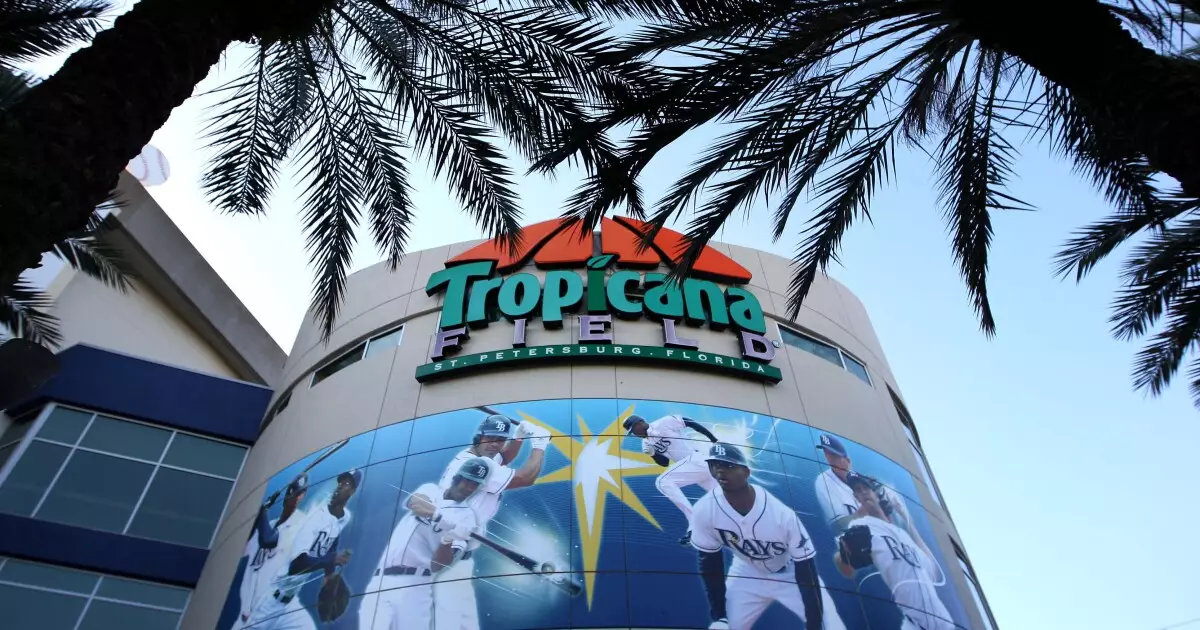In a move marking a pivotal moment for both local governance and Major League Baseball, the Pinellas County Commission has recently green-lighted a substantial $312 million bond intended to finance the construction of a new stadium for the Tampa Bay Rays. This occasion, however, has not unfolded without a resurgent wave of contention. The Rays, reasserting their financial requests from local agencies, may jeopardize the nascent optimism surrounding the proposed project. This article delves into the intricacies of the unfolding situation, revealing the tensions between the baseball franchise, local authorities, and the community.
The approval of the bonds was celebrated by some as a necessary step toward a modernized facility that could revitalize the community. Nevertheless, the Rays have brought an old issue to the forefront of discussions, demanding additional government funding, citing construction delays and increased costs as their primary motivation. President of the Tampa Bay Rays, Matt Silverman, articulated the distressing timeline, indicating that the projected completion of the ballpark may extend as far as 2029—an unwelcome prospect for fans and stakeholders alike.
The complexities entwined in this financial arrangement paint a picture of both urgency and hesitation. Despite a somewhat amiable pre-vote silence from the team, it was clear they were prepared to revisit the financial conversation. As the cost of constructing the stadium escalates, the Rays have publicly stated their inability to shoulder the sting of financial overruns alone, thereby intensifying their negotiations for additional funding.
The Role of Local Leadership
The commissioners’ vote split at 5-2 serves as a microcosm of the broader debates about public funding for sports franchises. While some affiliated with the Rays assert that they are providing an economic boon to the area, others express skepticism over the long-term viability and the ethical implications of using taxpayer money for private enterprise. Commissioner Renée Flowers insists that the onus lies with the Rays to uphold their responsibilities and trust the public’s investment. The commitment made by the city of St. Petersburg, spearheaded by Mayor Ken Welch, to channel existing bonds without extending further financial assistance exemplifies a growing reluctance among the public officials to bear the financial burdens imposed by professional sports teams.
In a striking contrast, Commissioner Chris Latvala boldly predicts that the principal owner of the Rays, Stuart Sternberg, will likely push for additional financial appropriations. Latvala’s apprehension suggests a fraught relationship between the franchise and local government, raising questions about the ethical implications of such financial strategies. The tension is palpable, with doubts lingering about the team’s loyalty to the region amidst threats of relocation if their needs go unmet.
Implications of Construction Delays
The urgency surrounding the construction timeline speaks volumes to both the local government and the future of the franchise. Chief Assistant County Attorney Don Crowell highlighted a critical deadline: if the Rays fail to meet an extensive list of conditions by March’s end, the contract may disintegrate, potentially stalling not just the stadium but also the redevelopment of the Historic Gas Plant District. The stakes have been elevated following Hurricane Milton’s damaging impact on Tropicana Field’s roof, further complicating the timeline as repairs are projected to be funded from multiple sources.
Mismanagement of funds and operational delays pose a significant risk not just for the Rays, but for the community that stands to benefit from a revitalized stadium. This underscores a pivotal truth in the realm of sports financing: the burden lies heavily on local governments and taxpayers when team owners push for demands perceived as self-serving. As negotiations unfold, the community will undoubtedly be scrutinizing the intricate dance between public interest and private gain.
With critical developments unfolding at a rapid pace, the upcoming months will be crucial for the Tampa Bay Rays, Pinellas County, and the citizens of St. Petersburg. As legacy and loyalty hang in the balance, the question remains whether the local government will truly insist on a meaningful partnership or yield to the pressures of a financial negotiation that might prioritize the franchise’s desires over community well-being. The outcome will not only define the future of the Tampa Bay Rays but will also serve as a bellwether for how sports franchises interact with the hometowns that welcome them. It is crucial for all stakeholders to weigh the potential economic benefits against the ethical concerns and trust inherent in such high-stakes financial negotiations.

